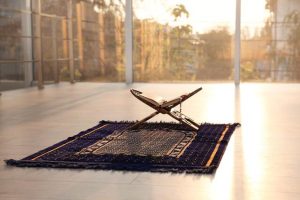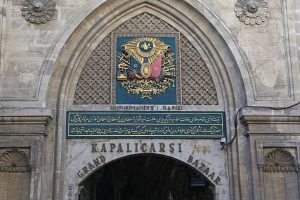Hadhrat Abu Bakr Siddeeq (Radhiallahu Anhu)’s Preparations for the Hijrah Hadhrat Aa'isha (Radhiallahu Anha) narrates that not a day would pass wherein Rasulullah (Sallallahu Alaihi Wasallam) had not visited us either in the morning or evening. This was his mubaarak habit until the day arrived when Allah Ta’aala permitted him …
Read More »Recent Posts
November, 2012
-
20 November
Fast Two Days on the Occasion of ‘Aashura
عن ابن عبّاس رضي الله عنه قال قال رسول الله صلى الله عليه وسلم صوموا يوم عاشوراء وخالفوا اليهود صوموا قبله يوما أو بعده يوما (مسند أحمد، الرقم 2154) Hazrat Ibn Abbaas (Radhiyallahu Anhu) reports that Rasulullah (Sallallahu Alaihi Wasallam) said, “Fast on the Day of ‘Aashuraa and contradict the …
Read More » -
20 November
Virtue of Fasting on the Day of ‘Aashura
عن أبي قتادة الأنصاري رضي الله عنه أن رسول اللّه صلى الله عليه وسلم سئل عن صوم يوم عاشوراء فقال يكفر السنة الماضية (صحيح مسلم، الرقم: 1162) Hazrat Abu Qataadah (radhiyallahu anhu) reports that Rasulullah (sallallahu alaihi wasallam) was asked regarding (the virtue of) fasting on the Day of `Aashuraa …
Read More » -
19 November
The Burial of a Pregnant Christian or Jewess Woman in the Nikaah of a Muslim
If a Christian or Jewess woman in the nikaah of a Muslim man passes away while she is pregnant, then if the foetus is alive, the child will be removed through surgery and the wife will be buried in a non-Muslim graveyard. If the foetus is not alive, then the …
Read More » -
17 November
Hadhrat Abu Bakr (Radhiallahu Anhu) intending to migrate to Madina Munawwarah
After the injunction of Hijrat had come down from Allah Ta’aala, most of the Sahaabah migrated to Madina Tayyibah. Similarly, those Sahaabah who migrated to Abyssinia, (after learning that the Sahaabah had migrated to Madina Tayyibah), also moved on to Madina Tayyibah, until such a time that there was nobody …
Read More »
-
Hazrat Abu Zarr (radhiyallahu ‘anhu) moving to Shaam and Rabadhah
It was on account of Hazrat Abu Zarr Ghifaari (radhiyallahu ‘anhu) looking at Rasulullah’s (sallallahu …
Read More » -
True Achievements – The Achievements of Deen – Adherence to The Sunnah – Part 54
-
Hazrat Abu Zar’s (radhiyallahu ‘anhu) Quality of Worldly Abstinence
-
Hazrat Moulana Muhammed Yusuf Kaandhelwi (rahimahullah) – Introduction – Adherence to The Sunnah – Part 53
-
The Adherence of Hazrat Abu Zar (radhiyallahu ‘anhu) to the Instruction of Rasulullah (sallallahu ‘alaihi wasallam
-
Receiving Seventy Rewards
Hazrat Abdullah bin Amr bin Aas (radhiyallahu ‘anhuma) reported, “Whoever sends salutations upon Nabi (sallallahu ‘alaihi wasallam) once,...
Read More » -
Increase in Sustenance
-
The Reward of Fasting on the Day of Arafah
-
The Angel that Stands at the Blessed Grave of Hazrat Rasulullah (sallallahu ‘alaihi wasallam) to Convey the Durood of the Ummah
-
Reciting Durood when Entering the Musjid
-
Sunnats and Aadaab of the Guest – 4
16. The guest should not eat all the food which the host serves in the …
Read More » -
Sunnats and Aadaab of the Guest – 3
-
Sunnats and Aadaab of the Guest – 2
-
Sunnats and Aadaab of the Guest – 1
-
Sunnats and Aadaab of the Host – 6
-
Hazrat Umar bin Khattaab (radhiyallahu ‘anhu)
Hazrat Umar (radhiyallahu ‘anhu) is the second khalifah of Islam and the greatest person of …
Read More » -
Hazrat Ali (radhiyallahu ‘anhu) – Part Forty-One – Being Sent by Rasulullah (sallallahu ‘alaihi wasallam) to Level the Graves, Destroy Idols and Erase Pictures
-
Rasulullah (sallallahu ‘alaihi wasallam) Approving of the Verdict of Hazrat Ali (radhiyallahu ‘anhu) – Part Forty
-
The True Ulamaa – Hazrat Ali (radhiyallahu ‘anhu) – Part Thirty Nine
-
Du‘aa for Assistance in Settling Debts – Hazrat Ali (radhiyallahu ‘anhu) – Part Thirty Eight
 Ihyaaud Deen An Effort to Revive Deen in Totality
Ihyaaud Deen An Effort to Revive Deen in Totality



















































































